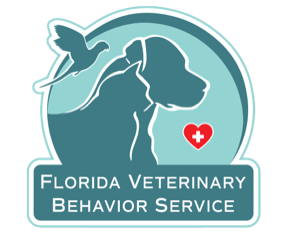Download this article as a PDF
Ten Easy Steps to Finding a Great Dog Trainer
Finding the right dog training professional can be incredibly helpful in forming a good working relationship with your dog, helping her grow upright, and ensuring that she will be a well-behaved canine member of society. Finding the right trainer for you can be a challenge if you don’t know where to look and what questions to ask. Ask the 8 questions below and you will be off on the right foot to finding the right trainer for your dog.
Q1. Do you have any certifications?
Dog trainers are not licensed and they are not required to have any particular level of knowledge of dog behavior before they can call themselves a dog trainer, behaviorist, or pet behavior consultant. This can make it very confusing when attempting to find someone who is qualified. Many dog training professionals elect to be voluntarily certified. Start your search by finding one of these trainers. That means that the trainer has taken the time to achieve a higher level of knowledge. Not all dog training certifications are the same of course. Look for one of the ones listed below:
International Association of Animal Behavior Consultants
Certification Council for Professional Dog Trainers
Victoria Stillwell Academy for Dog Training and Behavior
Q2. When is the last time you went to a continuing education seminar?
No matter how much experience you have and what your profession is, there is always something to learn from others. The dog trainer should have attended at least one continuing education seminar in the past year. This does not include seminars sponsored by the dog training company for which she works. You want to know that this trainer is reaching out to others outside of her circle or comfort zone to improve her level of knowledge.
Q3. How long have you been training dogs?
Experience is very important, but it can’t replace education or continuing education. It all goes together. Trainers who don’t have a year of experience may work under someone who does have more experience. You may feel comfortable with a trainer with less experience if she is working under one who has logged more hours. If this is the case, make sure that she will be consulting the more experienced trainer if need be.
Q4. What dog breeds have you trained?
If the trainer only trains a certain breed or type of dog, she will be more versed in how those dogs react to certain types of training. While you don’t have to hear “your” breed in her answer, you should hear something similar in size and temperament.
Q5. What type of methods do you use?
This is the million-dollar question. Positive reinforcement training began to really penetrate dog training over 20 years ago. If a trainer is still jerking dogs around on choke chains and holding them down in the dominance down, they are way, way behind. The science overwhelmingly supports positive reinforcement training as the most effective way to train a dog AND is least likely to do your dog any harm.
Q6. Are you familiar with clickers, no-pull harnesses, and head collars?
There is no one tool that works with all dogs. While a head collar or a clicker is not needed for every dog, the trainer should know what these tools are and use them when needed.
Q7. Do you use shock, pinch or choke collars?
There is no place for shock collars, pinch collars, or choke collars in training dogs. Shock especially is a powerful tool that in one repetition can increase fear and aggression. Choke collars are outdated, ineffective, and difficult to use training tools which can be dangerous.
Q8. Do you guarantee the dog’s behavior after it is trained?
We all want that guarantee whether it be from our doctor, our spouse, our child’s teacher, or our dog trainer. Just as your child’s teacher can’t guarantee that your child will be an astronaut because your child is living, breathing being with her own mind, your dog trainer cannot guarantee your dog’s behavior. There are too many factors (you, your dog, the environment) that affect your dog’s behavior for anyone to guarantee results. Instead, they might be able to let you know how many dogs they have trained and what the results were with those dogs.
